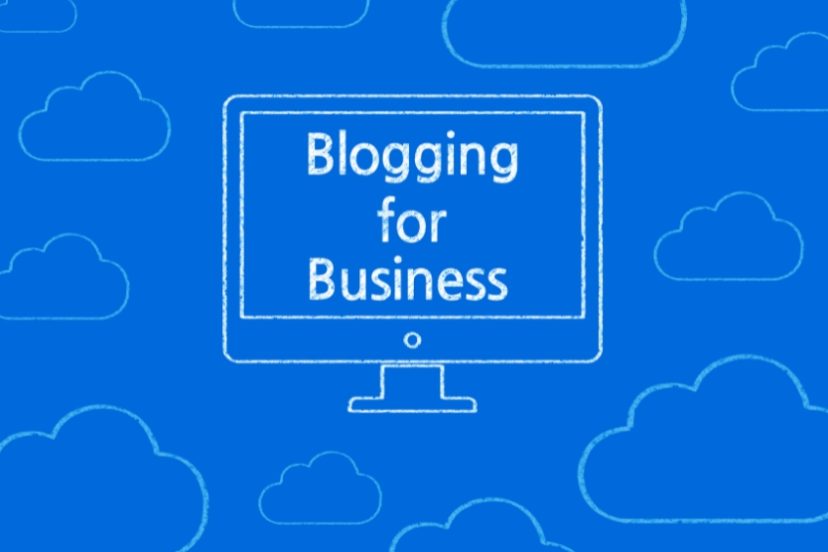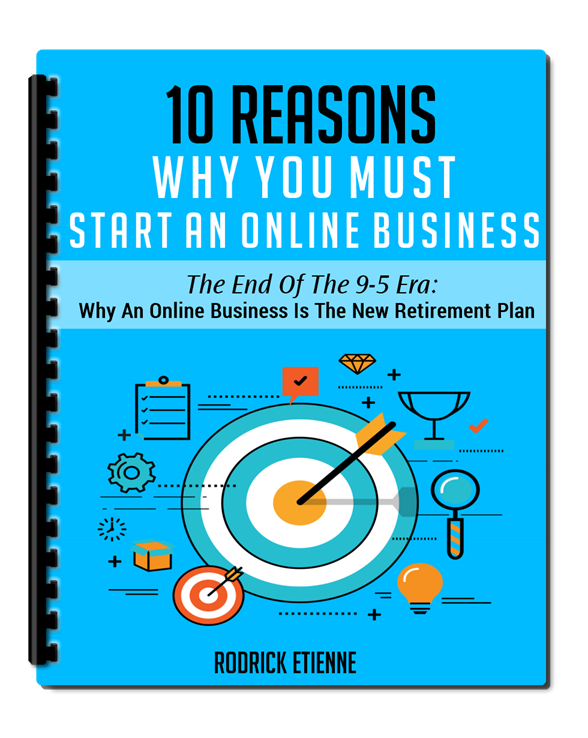Building and marketing a blog while juggling a full-time job is a challenge most entrepreneurial creators…
13 Urgent Reasons Every Entrepreneur Needs A Blog

In today’s fast-paced digital world, entrepreneurs and business owners face an overwhelming array of challenges.
From building a brand to generating leads, staying visible online is no longer optional—it’s essential. One of the most powerful tools at your disposal is a blog.
While some may view blogging as outdated or secondary to social media, the truth is that a well-crafted blog can be the foundation of your online presence, establishing authority, driving traffic, and building meaningful relationships with your audience.
We’ll dive into 13 urgent reasons why every entrepreneur needs a blog, providing practical examples, actionable tips, and strategies to make blogging a cornerstone of your business growth.
By the end, you’ll understand why a blog isn’t just an option—it’s a necessity for sustainable entrepreneurial success.
1)) Establish Authority and Credibility
In business, perception is everything. When potential clients or investors land on your website, they quickly assess whether you’re knowledgeable and trustworthy. A blog allows you to showcase your expertise, share insights, and position yourself as an authority in your industry.
Why this matters: Entrepreneurs who consistently publish high-value content build credibility over time. Readers begin to see them as thought leaders rather than just business owners trying to sell a product.
Tips for establishing authority:
-
Write how-to guides that solve common problems in your niche.
-
Publish case studies highlighting real-life business wins or lessons learned.
-
Share personal insights and experiences that reveal your expertise.
-
Invite guest experts to contribute, reinforcing your network and credibility.
Example: If you run a digital marketing consultancy, publishing detailed breakdowns of ad campaigns or SEO strategies not only educates your audience but positions your brand as a go-to resource.
2)) Attract Targeted Traffic
No matter how good your product or service is, you can’t make sales without traffic. Blogs are a highly effective way to drive targeted visitors to your website.
Unlike social media, which has a limited lifespan for posts, blog content remains on your site indefinitely, attracting readers over time through search engines and social shares.
Checklist for driving traffic:
-
Conduct keyword research to understand what your audience searches for.
-
Optimize each post with on-page SEO elements (title tags, meta descriptions, headings).
-
Include internal links to other relevant blog posts or service pages.
-
Promote posts across email newsletters and social media channels.
Hack: Evergreen content, such as “How to Start a Small Business on a Budget,” can continue driving traffic years after it’s published, creating long-term value for your business.
3)) Build and Nurture Relationships
A blog isn’t just about selling—it’s about connecting. Consistently publishing valuable content creates opportunities to engage with your audience on a deeper level.
Readers can comment, ask questions, or share your content, opening the door for meaningful conversations.
Best practices for relationship-building:
-
End each post with a question or call-to-action to encourage comments.
-
Respond promptly to questions or feedback left on your blog.
-
Highlight reader success stories or testimonials in your content.
-
Use newsletters to send personalized blog updates, keeping your audience engaged.
Example: If you offer coaching services, a blog post detailing a client’s journey from struggle to success can inspire readers while subtly demonstrating the value of your programs.
4)) Support Your Social Media Strategy
Social media is essential for reaching your audience, but it works best when you have content to share. A blog provides a steady stream of shareable material, helping you maintain an active presence online without reinventing the wheel.
Ideas for social media integration:
-
Break blog posts into snippets for LinkedIn or Twitter.
-
Create visual quote cards or infographics summarizing key points.
-
Use blog posts as conversation starters in Facebook or LinkedIn groups.
-
Repurpose content into short video scripts or reels for TikTok and Instagram.
Resource Tip: Tools like Canva or Lumen5 can transform blog content into eye-catching social media graphics or videos, extending reach and engagement.
5)) Improve Search Engine Rankings
SEO is one of the most compelling reasons to maintain a blog. Search engines love fresh, relevant content, and a regularly updated blog gives Google and other search engines plenty of opportunities to index your website.
Higher rankings translate into more visibility, organic traffic, and leads.
SEO best practices for bloggers:
-
Focus on long-tail keywords relevant to your audience.
-
Include internal and external links to improve authority.
-
Optimize images with alt text and descriptive filenames.
-
Ensure mobile responsiveness and fast loading times.
Example: A blog post titled “10 Cost-Effective Marketing Strategies for New Entrepreneurs” can target niche search terms that potential clients are actively looking for, improving your chances of appearing on page one of Google.
6)) Generate Leads and Sales
While blogs are excellent for brand-building, they also have a direct impact on your bottom line. By offering valuable insights, you naturally build trust with your readers, making them more likely to convert into paying customers.
Lead-generation tactics:
-
Include call-to-action buttons or links in every blog post.
-
Offer downloadable resources such as eBooks, templates, or checklists.
-
Use lead magnets to capture emails and grow your marketing list.
-
Segment leads based on blog interests for targeted campaigns.
Example: If you sell a SaaS product, a post like “5 Time-Saving Tools Every Startup Needs” can include a CTA inviting readers to sign up for a free trial.
7)) Create Content for Email Marketing
Email marketing remains one of the most effective ways to nurture leads. Blogs provide ready-made content that can populate newsletters, drip campaigns, or autoresponders.
This approach not only saves time but ensures your email content stays valuable and relevant.
Checklist for email integration:
-
Summarize blog posts with a link to read the full article.
-
Highlight tips, insights, or industry news from your blog.
-
Use blog content to educate leads before pitching products or services.
-
Track engagement metrics to see which topics resonate most with subscribers.
Tip: Repurposing blogs into email series allows you to stay top-of-mind with potential clients without creating entirely new content from scratch.
8)) Build a Personal Brand
A blog is a powerful tool for personal branding. Entrepreneurs who blog about their experiences, perspectives, and lessons learned stand out in a crowded marketplace.
This personal touch creates authenticity and fosters loyalty among readers.
Ideas for building your personal brand:
-
Share personal stories or lessons from failures and successes.
-
Highlight behind-the-scenes glimpses into your business operations.
-
Write opinion pieces on trends or controversies in your niche.
-
Collaborate with other influencers or entrepreneurs to broaden reach.
Example: Richard Branson’s personal blog demonstrates the power of storytelling in building a recognizable and trusted personal brand that aligns with business success.
9)) Strengthen Your Sales Funnel
Every business needs a well-defined sales funnel, and blogs play a crucial role in guiding potential customers through the buyer journey.
Educational content can move prospects from awareness to consideration, and eventually to a purchase decision.
Checklist for blog-driven funnels:
-
Map blog topics to each stage of the customer journey.
-
Include CTAs for free resources or consultations in awareness-stage posts.
-
Offer case studies or demos in consideration-stage posts.
-
Use testimonials or reviews in decision-stage posts to build confidence.
Hack: A well-structured blog content calendar ensures that every post serves a purpose in your sales funnel, reducing wasted effort and increasing conversions.
10)) Showcase Your Products or Services
A blog gives you a platform to naturally feature your offerings without sounding overly promotional. By demonstrating how your products or services solve real problems, you educate your audience while driving interest.
Best practices:
-
Use tutorials, guides, or how-to articles that incorporate your products.
-
Include real-life success stories or testimonials.
-
Compare your solution to alternatives to highlight unique benefits.
-
Keep a balance between educational content and promotional mentions.
Example: A fitness coach can write a blog post on “3 At-Home Workouts for Busy Professionals,” subtly highlighting their online coaching program as a resource.
11)) Encourage Networking and Collaboration
Entrepreneurs thrive on connections. Blogging opens doors to partnerships, collaborations, and guest posting opportunities.
When other business owners recognize the value of your content, it can lead to mutual promotion and strategic alliances.
Ideas for networking via your blog:
-
Feature interviews with industry experts or influencers.
-
Guest post on other blogs and link back to your site.
-
Invite collaborators to contribute content to your blog.
-
Comment thoughtfully on other blogs to build relationships.
Tip: Networking through blogs can amplify your reach far beyond your existing audience, providing opportunities that social media alone may not deliver.
12)) Gain Insights About Your Audience
A blog is not just a broadcasting tool—it’s a listening tool. By analyzing which posts perform best, which topics spark comments, and how readers navigate your site, you gain valuable insights into what your audience truly wants.
Checklist for audience insights:
-
Track metrics like page views, time on page, and bounce rate.
-
Monitor comments and social shares to understand interests.
-
Use polls or surveys to gather direct feedback.
-
Adjust future content strategies based on performance data.
Resource Tip: Tools like Google Analytics and Hotjar can help you visualize reader behavior and inform more targeted content creation.
13)) Future-Proof Your Business
Digital trends are constantly evolving, but a strong blog is a long-term asset. Unlike fleeting social media posts or paid ads, well-written content continues to provide value, attract leads, and build authority over time.
A blog future-proofs your business by creating a digital footprint that compounds year after year.
Best practices for future-proofing:
-
Focus on evergreen content that remains relevant.
-
Update older posts to reflect new trends or insights.
-
Maintain a consistent publishing schedule.
-
Archive or reorganize content to maximize accessibility and SEO benefits.
Example: A post written five years ago on small business tax tips can still attract traffic today if updated periodically, demonstrating ongoing value and relevance.
Conclusion
Entrepreneurs who underestimate the power of a blog are missing out on a multifaceted tool that builds authority, attracts traffic, nurtures relationships, supports sales, and future-proofs their business.
From SEO advantages to personal branding opportunities, blogs are the cornerstone of modern entrepreneurial success.
If you haven’t started a blog yet, there’s no better time than now. Even a few well-crafted posts per month can transform your business by establishing credibility, generating leads, and connecting you with your ideal audience.
By integrating blogging into your strategy today, you’re not just sharing content—you’re investing in your business’s growth, visibility, and long-term success.





